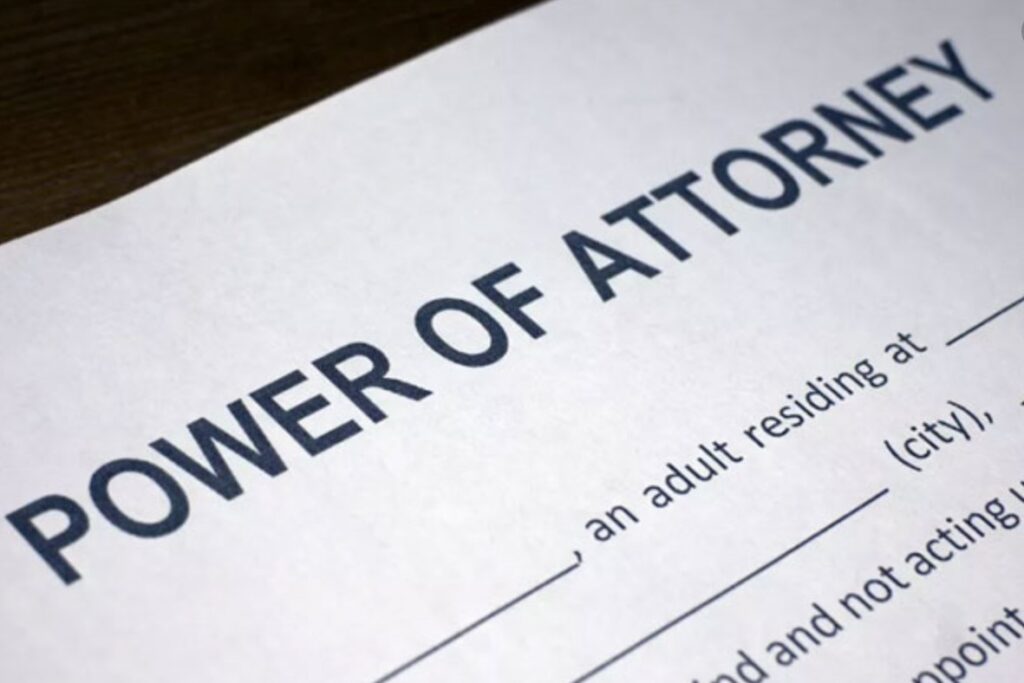
Power of attorney, as its names suggest, does hold a lot of power. But do you know how much? It can serve a purpose if you have an older loved one, and you want to make sure they get the proper care. What this document looks to sure is the well-being of parties involved even after they’re no longer able to care for themselves. It is an excellent insurance policy for some events, but it is not almighty as some would believe. In this article, we are going to talk about the five common misconceptions about the power of attorney.
1. Signing a Document Downloaded From Internet

In theory, you could find a viable document on the web, download it, print it, and have it as a real deal ready to be signed. But, this is not a route you would like to take if you want everything ending the right way. The issue with documents easily found online is that in some cases, they can be inaccurate, and this makes them a sitting duck in terms of invalidation. What you want for yourself and your loved ones is a document drafted by a lawyer. This is how you buy yourself safety. A lawyer is going to guarantee its validity; it will be fact-checked for all the requirements, national, state, and local, and it will contain everything that matters with the right signatures. While the Internet is a fantastic discovery, this issue should be left in the hands of professionals.
2. Power Of Attorney is Always The Same

Power of attorney has a precise definition, but people often allow themselves to interpret it as they like. For some, it all comes down to the permit to make legal and financial decisions in someones else name. But, the power actually refers to one or more specific things clearly named in the document. For example, a power of attorney can be made only in relation to things tied to real estate. If this is the wish of the person giving the power, it needs to be created by a lawyer that will specify all terms. Nothing can be left unclear in the matter.
When older people get sick or are simply no longer to be able to take care of themselves, they need someone, a caregiver, to take good care of them. In a power of attorney, they can also include if they wish or do not wish a caregiver. It is possible that they’ll want to choose someone to take care of them or to list someone they don’t want to be around. With a carefully constructed document, all of these matters can be taken care of. If you want more details on the specifics and diversity of each individual power of attorney, you can always read more.
3. It Can Live Longer Than Death

This is one relatively common misconception that most people find easy to believe. What confuses the people is the difference between the normal and durable power of attorney. Let’s see what the durable one is. As its names suggest, it has an extended influence on the ones who signed it. What it means is that the agent holds the power even after the person who issued it is mentally incapacitated. While this broadens its strength, there is no document of this type that can extend past the person’s death. Once the person who issued it seizes to exist, so does a power of attorney. After death, everything is usually settled by a will or by an inheritance law, which is in power in the given state or a region.
4. You Can Sign it After an Older Adult is Declared Incompetent

Here it would be best if you used common sense. Once someone isn’t able to take care of himself, it is definitely not able to sign a legal document, even if it benefits him. This is what people get wrong. Many individuals out there believe that the time for this document comes once a senior is already declared incompetent. This is not true! This document is a binding one, and someone who is not clear in mind is by no means able to sign it. If you find yourself in a situation like this, a power of attorney is not the solution. Instead, it would be best if you petitioned for legal guardianship in the amenable court. Yes, getting this is much harder, and it can consume your time and effort, so you should sign a power of attorney before it’s too late.
Seniors who tend towards having mental issues should be advised to sign a power of attorney while they still can think for themselves. Once they’re in need of help with issues such as cooking, grooming, or bathing, it could be too late. While this might be hard for families to wrap their heads around, it’s the best course to take and should be done without hesitation.
5. It Gives Total Control

Yes, as its names suggest, it holds power, but it is not unlimited by no means. It is all about the client, whose interests need to be in the first place, both health and financial. The power the agent holds is specified and limited. In practice, the agent can’t do as he pleases with your assets, and it is not the owner of them. The only job he or she needs to do is to protect your interests as a caretaker. It is similar to soccer. Your agent is the manager, it will take care of the team, and is in charge of the results, but you remain the owner. Many people are afraid that if they sign this document, they could lose everything they own. There’s a chance this could happen, but they’re slim. In practice, your agent is obligated to protect your interest and not to look after their won to your detriment. The best way to sleep well and avoid thinking of losing your assets is to appoint someone who holds your trust.
















